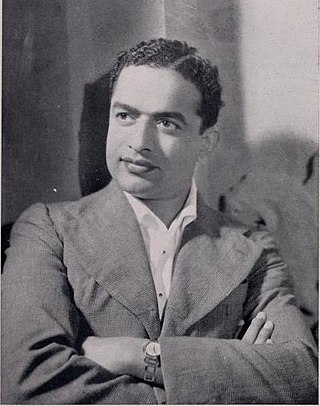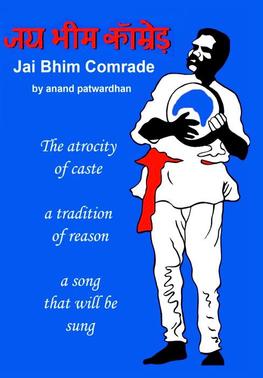
Sooni Taraporevala is an Indian screenwriter, photographer, and filmmaker who is the screenwriter of Mississippi Masala, The Namesake and Oscar-nominated Salaam Bombay!, all directed by Mira Nair. She also adapted Rohinton Mistry's novel Such A Long Journey and wrote the films Dr. Babasaheb Ambedkar, her directorial debut Little Zizou, and Yeh Ballet, a Netflix original film that she wrote and directed.

The International Documentary Film Festival Amsterdam (IDFA) is the world's largest documentary film festival held annually since 1988 in Amsterdam, Netherlands.

Shantaram Rajaram Vankudre, also known as V. Shantaram or Shantaram Bapu, was an Indian film director, film producer, screenwriter and actor known for his work in Hindi and Marathi films. He is best known for films such as Dr. Kotnis Ki Amar Kahani (1946), Amar Bhoopali (1951), Jhanak Jhanak Payal Baaje (1955), Do Aankhen Barah Haath (1957), Navrang (1959), Duniya Na Mane (1937), Pinjara (1972), Chani, Iye Marathiche Nagari and Zunj.

The Central Board of Film Certification (CBFC) or Censor Board of Film Certification is a statutory film-certification body in the Ministry of Information and Broadcasting of the Government of India. It is tasked with "regulating the public exhibition of films under the provisions of the Cinematograph Act 1952." The Cinematograph Act 1952 outlines a strict certification process for commercial films shown in public venues. Films screened in cinemas and on television may only be publicly exhibited in India after certification by the board and edited.
Sanjit Narwekar is an Indian documentary filmmaker scriptwriter and author. A 1967 alumni of Bombay Scottish High School, Mumbai, he completed his Bachelor's in Statistics (1974) and his Master's in Economics (1976) from the University of Mumbai.
Final Solution documentary film directed by Rakesh Sharma concerning the 2002 Gujarat riots in the state of Gujarat in which 254 Hindus and 790 Muslims were killed. Hindu right-wing organizations were made responsible for these riots, which took place as a "spontaneous response" to the killing of 70 Hindu pilgrims in the Godhra Train Burning by a mob of radical Muslims on 27 February 2002. But as the film proceeds with victims continuing to come forward and share their experiences, a more unsettling possibility seems to emerge- that far from being a spontaneous expression of outrage. The makers of the film claim that the violence had been carefully coordinated and planned.

Anand Gandhi is an Indian filmmaker, entrepreneur, media producer, innovator and systems researcher. He is also the founder/CEO of the Mumbai-based new media studio and systems think tank Memesys Culture Lab. His debut feature film Ship of Theseus (2013), which premiered at the Toronto International Film Festival, won the National Film Award for Best Picture. Gandhi's second film as creative director, executive producer and screenwriter, Tumbbad opened the Critics' Week at the 75th Venice Film Festival, released to a wide critical acclaim in October 2018.
A Story of People in War and Peace is a 2007 documentary film written and directed by Armenian filmmaker and war veteran, Vardan Hovhannisyan.
The 1997 Ramabai killings were a mass killing of Dalit residents of the Ramabai Ambedkar Nagar colony in Mumbai on 11 July 1997. A team of State Reserve Police Force members fired upon a crowd protesting the recent desecration of a statue of Constitution maker B. R. Ambedkar. 10 Dalits were killed and 26 injured in the incident.

Anwar Jamal is an Indian documentary filmmaker, based in New Delhi. He has been awarded the National Film Award on several occasions and had made critically acclaimed feature, short and documentary films a wide array of social, political and cultural themes. He has served as jury in many international film festivals including National Film Award Jury.
War and Peace is a 2002 Indian documentary film directed by Anand Patwardhan. The film covers the Indian and Pakistani nuclear weapons tests in 1998, as well as the nationalist rhetoric that accompanied these tests. It also explores the ill-effects of the Indian test on the surrounding population and the reactions to the test among the government and the public. The latter part of the film also covers the perception of nuclear weapons in Japan and the United States. Upon the film's completion, the Indian censor board demanded that Patwardhan make 21 cuts before it could be released, including cutting all speeches by politicians. Patwardhan refused and took the matter to court; the Bombay high court ruled in his favour a year later, and the film was released without any cuts.

Jai Bhim Comrade is a 2011 Indian documentary film directed by Anand Patwardhan. The film begins with a description of police violence in the 1997 Ramabai killings. It goes on to explore various aspects of the lives and politics of Dalit people in Mumbai. The film took 14 years to produce, and was released in 2011 after the conclusion of the court trials that followed the Ramabai incident. The film was widely shown both nationally and internationally, and received an overwhelmingly positive reaction. It has won numerous national and international awards.

Kabir Kala Manch was a cultural organisation that was formed in Pune, Maharashtra, India, in the wake of the Gujarat riots in 2002. Through music, poetry and theatre, it aims to spread an anti-caste, pro-democracy message. It comprises students and young professionals who perform protest poetry and plays in slums and streets.

The Mumbai International Film Festival for Documentary, Short and Animation Films (MIFF) is a festival organized in the city of Mumbai by the Films Division, Ministry of Information and Broadcasting, Government of India. It was started in 1990, and focuses on documentary, short fiction and animation films.

Father, Son, and Holy War is a 1995 film by Indian documentary filmmaker Anand Patwardhan. The film is shot in two parts, with the first examining the link between the violence of the Hindu nationalist movement, such as the demolition of the Babri Masjid, and sexual violence against women. The second part looks at the nature of masculinity in contemporary urban India, and its role in encouraging sexual violence. As with other films of his, Patwardhan had to fight multiple court battles in order to force the national carrier Doordarshan to screen the film, a screening which eventually occurred on the orders of the Supreme court. The film received numerous national and international awards, and was also seen positively by critics.

Ram ke Naam is a 1992 documentary by Indian filmmaker Anand Patwardhan. The film explores the campaign waged by the right-wing Hindu nationalist organisation Vishva Hindu Parishad to build a temple to the Hindu deity Ram at the site of the Babri Masjid in Ayodhya, as well as the communal violence that it triggered. A couple of months after Ram ke Naam was released, activists of the VHP and other Hindu nationalist groups demolished the Babri Masjid in 1992, provoking further violence. The film earned Patwardhan a wide recognition, and received several national and international awards.
Vilas Ghogre was a prominent Dalit activist, poet, and artist from Bombay who committed suicide in protest against the 1997 Ramabai killings in which 10 Dalits were killed by Maharashtra State Reserve Police Force and 26 were injured. He is featured prominently in Anand Patwardhan's documentaries Bombay Our City (1985) Jai Bhim Comrade (2011).
Bhagwan Das Garga, also known as B. D. Garga, was an Indian documentary filmmaker and film historian.

The 16th Mumbai International Film Festival was held from 28 January to 3 February 2020.

The 53rd International Film Festival of India was an event held from 20 to 28 November 2022 with Alma & Oskar by Dieter Berner as the opening feature film, and Perfect Number by Krzysztof Zanussi as the closing feature film. France was the country of focus in the festival with eight films of the country included in the 'country of focus' section.















